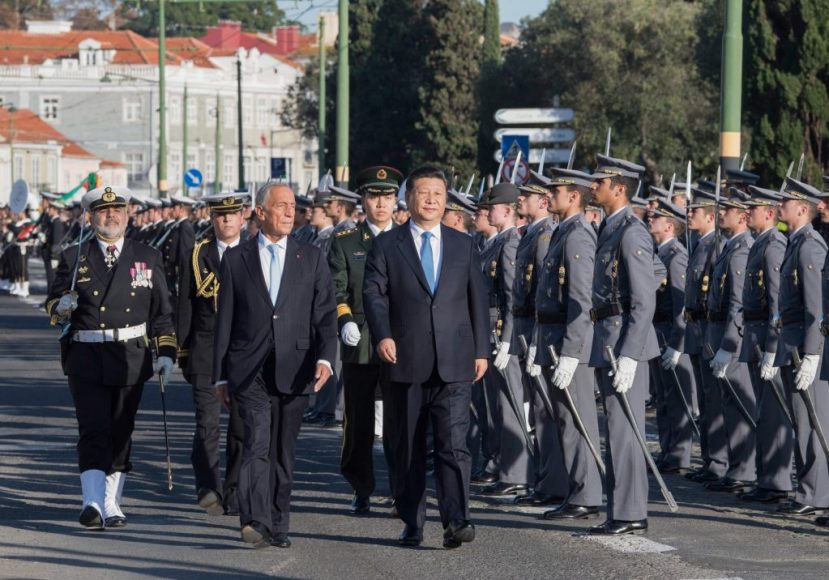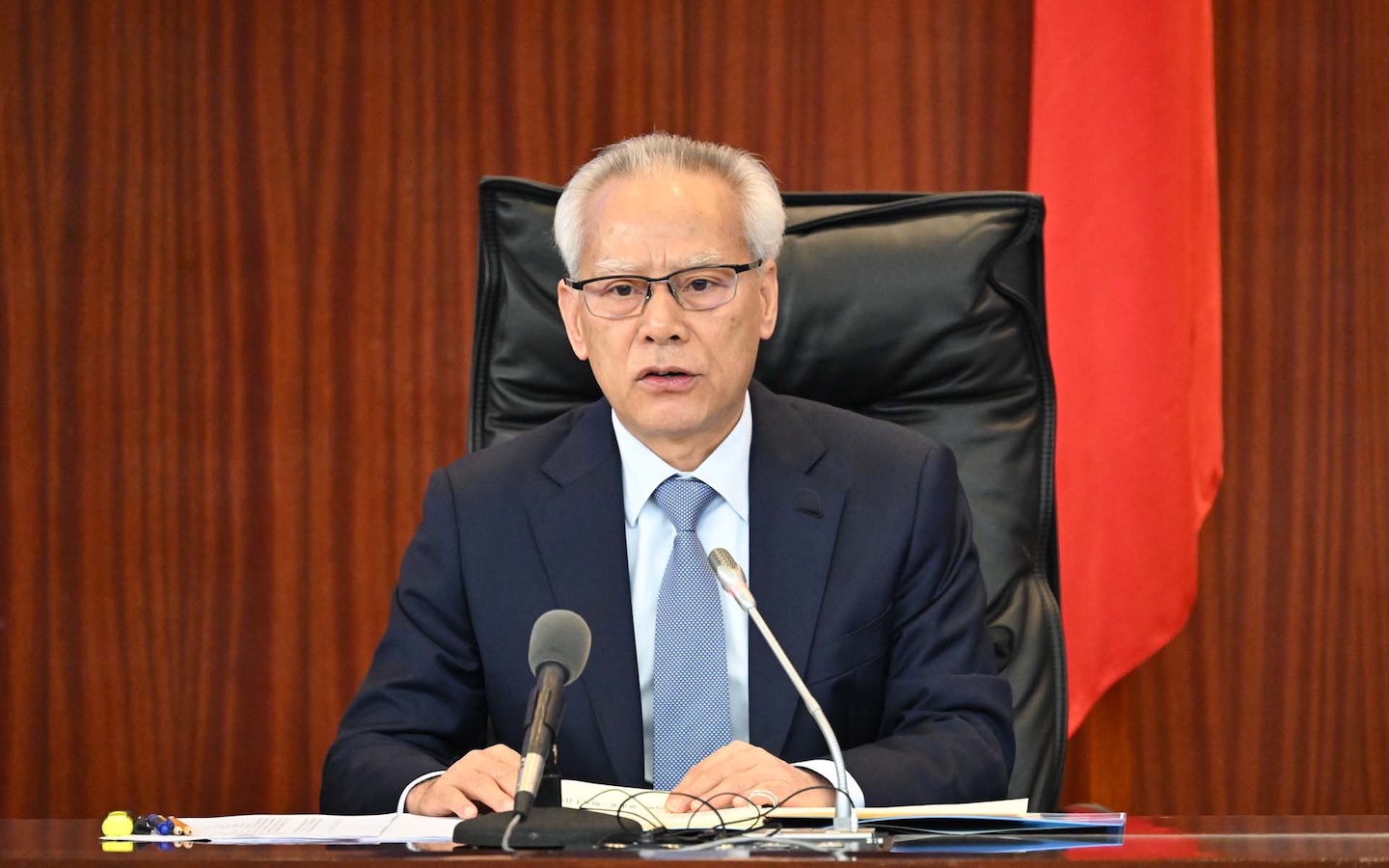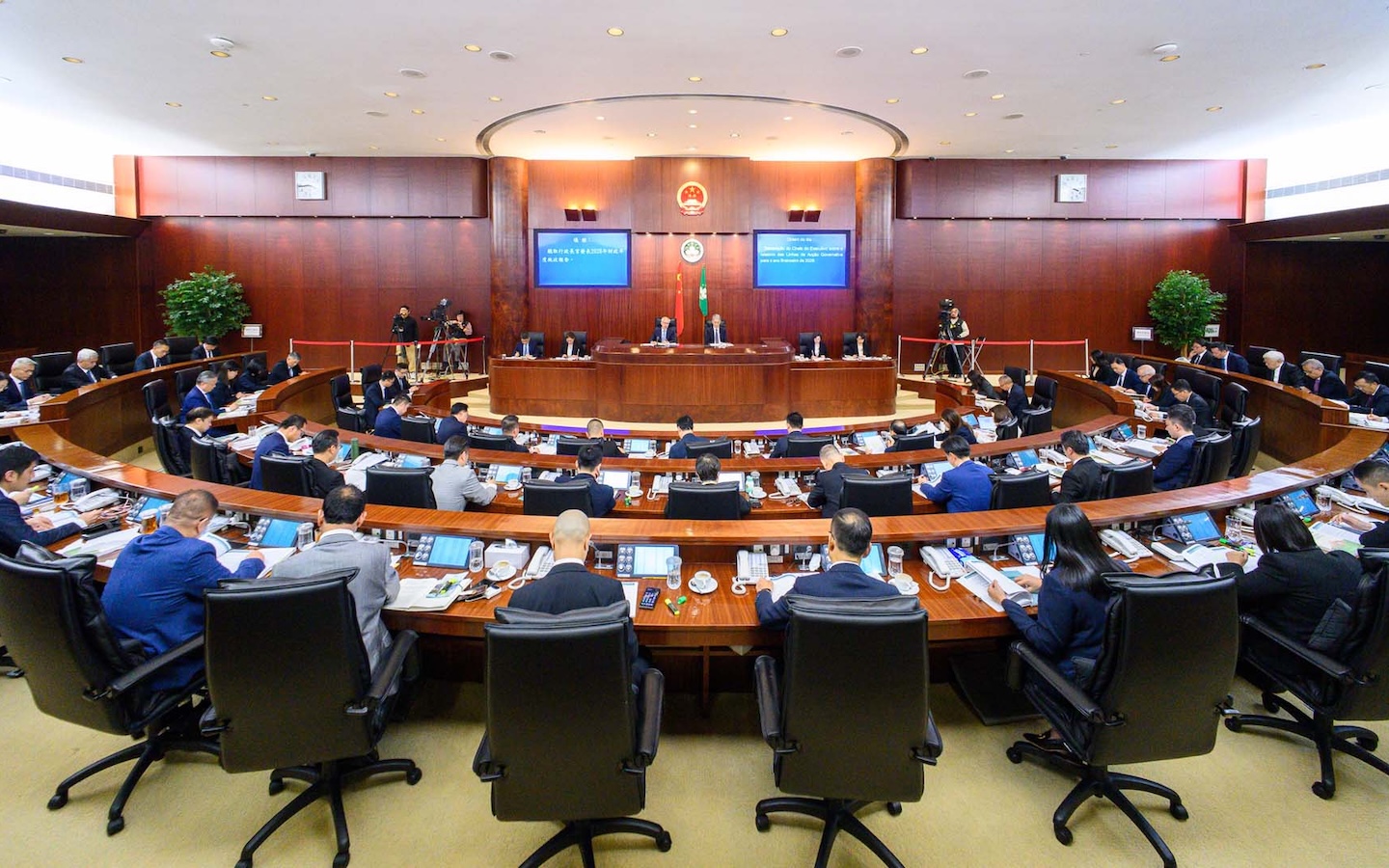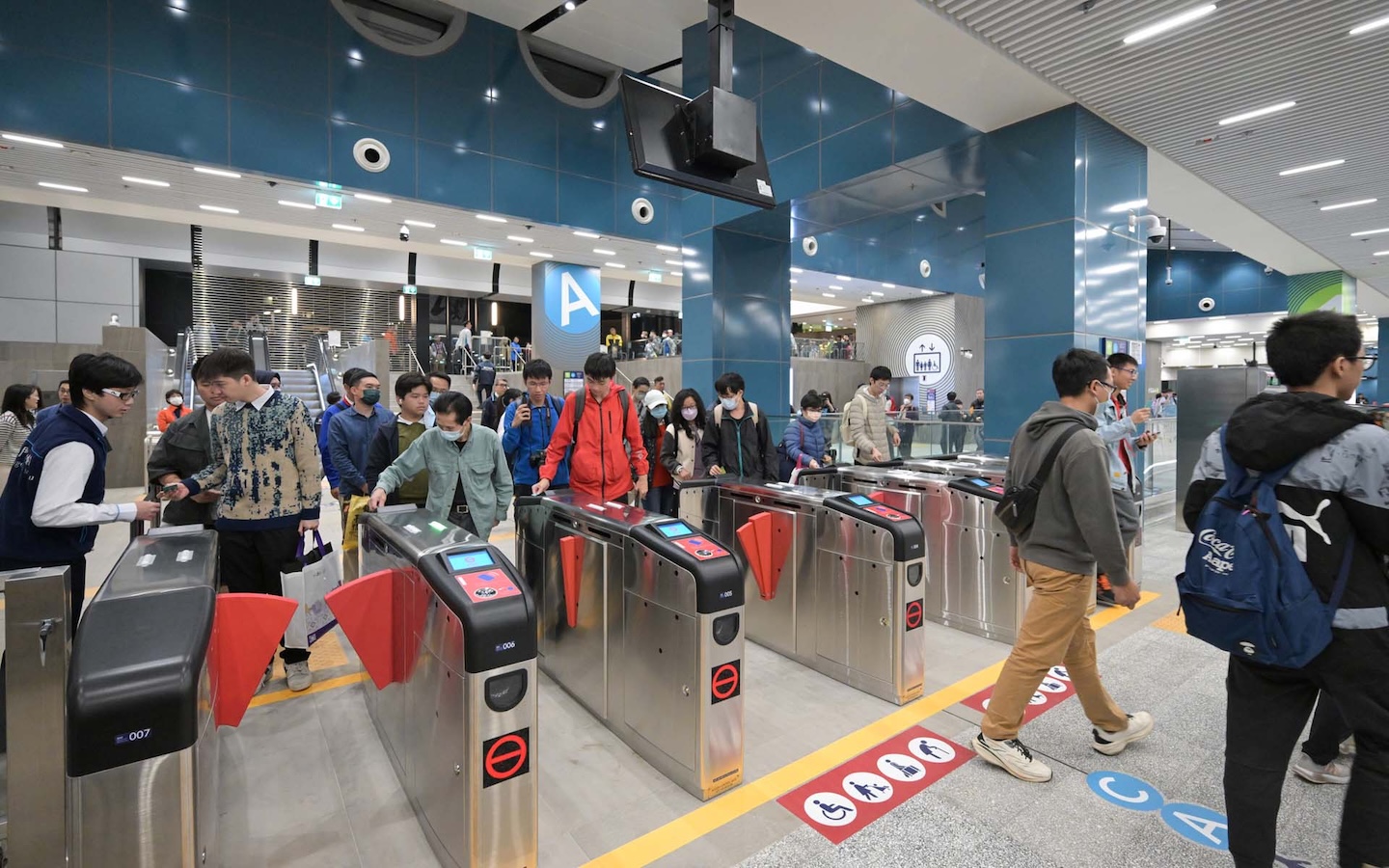PHOTOS Patricia de Melo Moreira/AFP and Xinhua News Agency
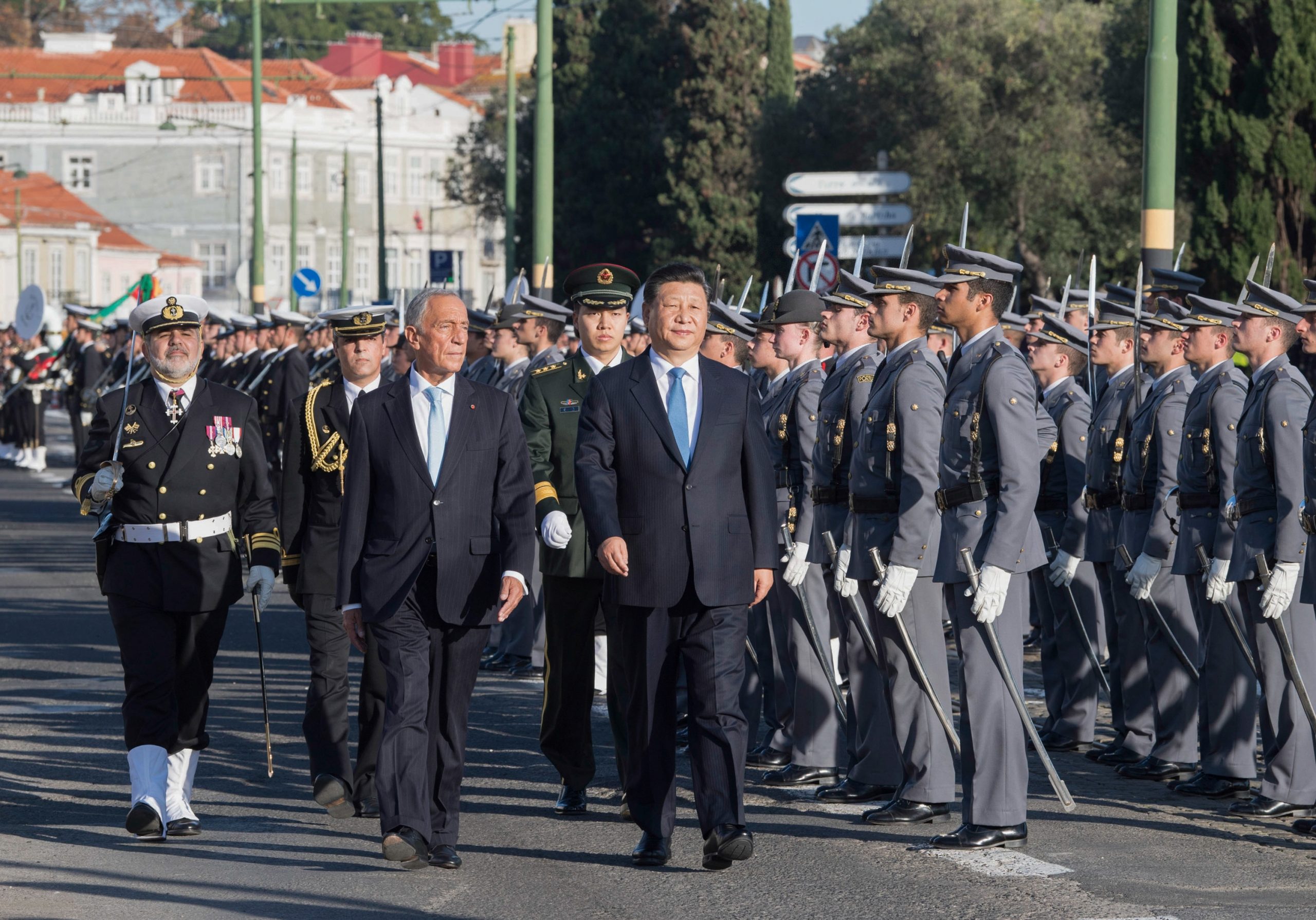
From the outset, the visit to Portugal by Chinese President Xi Jinping, 4–5 December 2018, was regarded by both governments as a landmark in the existing strategic cooperation. Indeed, China’s head of state returned to Beijing with assurance of Portugal’s participation in the Belt and Road Initiative (BRI), a position that promises Portugal a valuable role in the strategy, which is already shaping global connectivity in the 21st century. Macao’s own role was also ensured, at the highest level by both China and Portugal.
A Memorandum of Understanding (MoU) signed during the visit solidified Portugal’s participation in the BRI document lasts for five years, and is valid for extension through further five-year periods unless terminated by one of the parties. In addition to being a key point for the BRI in the Iberian Peninsula – Spain shied away from signing a similar MoU – Portugal emerged from President Xi’s visit as a key partner in Europe.
The document addresses both countries’ support for synergies between the BRI and “priorities defined in the investment plan for Europe and the EU Strategy on Connecting Europe and Asia, including the Trans-European Networks, and [welcomes] the outcomes of the discussion in the EU-China Connectivity Platform.” This should help to allay concerns expressed by Portugal’s European partners regarding a harmonious articulation between China and the EU’s projects.
Under the agreement, the two sides will work together within the BRI to realise the goal of enhancing development and translating mutual complementary strengths into advantages for practical cooperation and sustainable growth. They also agreed to strengthen cooperation and promote Europe-Asia connectivity, in part by jointly establishing “an economic cooperation framework which is open, inclusive, balanced, fair, transparent and beneficial to all, according to international rules.” The goals include promoting the growth of the blue economy, by deepening the “blue partnership,” which aims to promote collaboration between the two countries’ governments, science and technology sectors, businesses, and general public in related fields.
In terms of articulation, the two sides committed to promoting bilateral cooperation guided by the principles of “extensive consultation, joint contribution and shared benefits, with respect for each other’s core interests and deepen mutual trust and beneficial cooperation for common development and prosperity.” This, in accordance with their respective international obligations and applicable domestic laws and regulations, ensures the safe and smooth progress of related cooperation projects and promises to energise their economic and social development.
In accordance with the concept of cooperation, development and win-win progress under the BRI, Portugal and China also undertake in the MoU to “make full use of existing bilateral cooperation mechanisms, multilateral mechanisms and institutions that they both joined.” Leveraging entities including the World Bank, the European Bank for Reconstruction and Development, the Asian Development Bank, the Asian Infrastructure Investment Bank and effective regional cooperation platforms – in particular the EU-China Connectivity Platform – “to form synergy and provide each other support.”
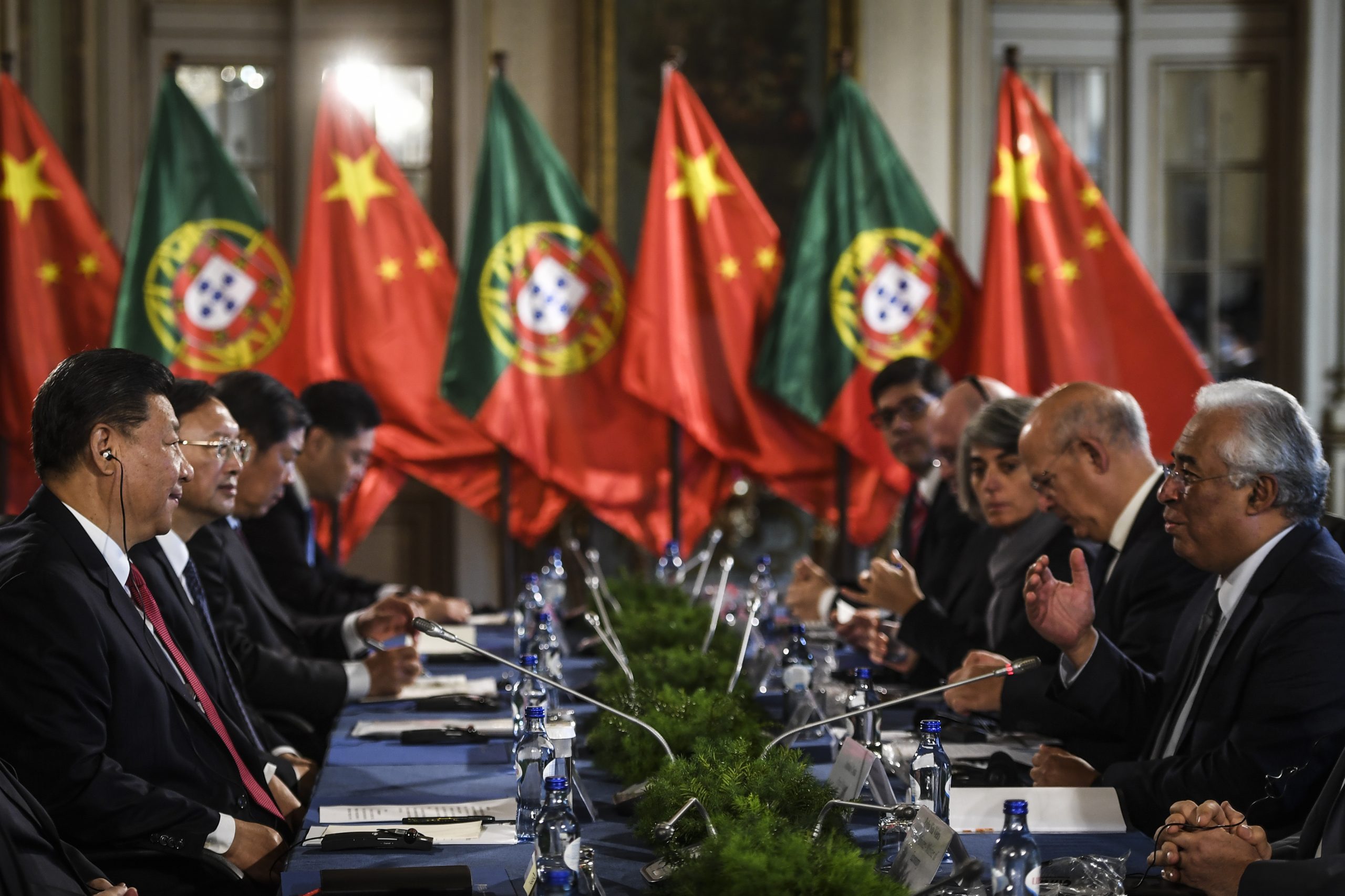
Stating their will to “promote global connectivity in sectors of common interest in an harmonious, balanced and respectful manner,” Portugal and China established seven key areas of cooperation. The first – policy coordination – will complement all subsequent cooperative actions, ensuring that both countries adopt policies aimed at achieving their shared goals.
A memorandum of Understanding (MoU) signed during the visit solidified Portugal’s participation in the Belt and Road Initiative.
The second – air, land and maritime transport, logistics, and port infrastructure – will take into account the role of the Port of Sines and other ports may fill in the implementation of the BRI, given their “privileged geographic position,” realising Portugal’s wish to give its ports a major role in the initiative.
Prior to the signing of the agreement, the Portuguese government was already in full steam promoting the use of the Sines port, located in the southwest of the country, for the BRI. Now, Chinese players, working within the BRI, will have a word to say over the future of Sines, including the new Vasco de Gama terminal. According to CL Brief, contacts are open between the Portuguese government and Chinese maritime operator COSCO corporation, among others.
Development of air transport links between the two countries will also be fostered, according to actual market demands, as well as strategic rail connections, as foreseen in the bilateral agreement.
The third area of cooperation established in the MoU signed during Xi’s visit is mobility and connectivity, with both sides committing to enhance initiatives aimed at promoting R&D, production and use of electric vehicles, as well as the setting up of other energy-efficient infrastructure and intermodal transport solutions, including the establishment of strategic rail connections with the Trans-European Transport Network and the sustained development of direct air transport links.
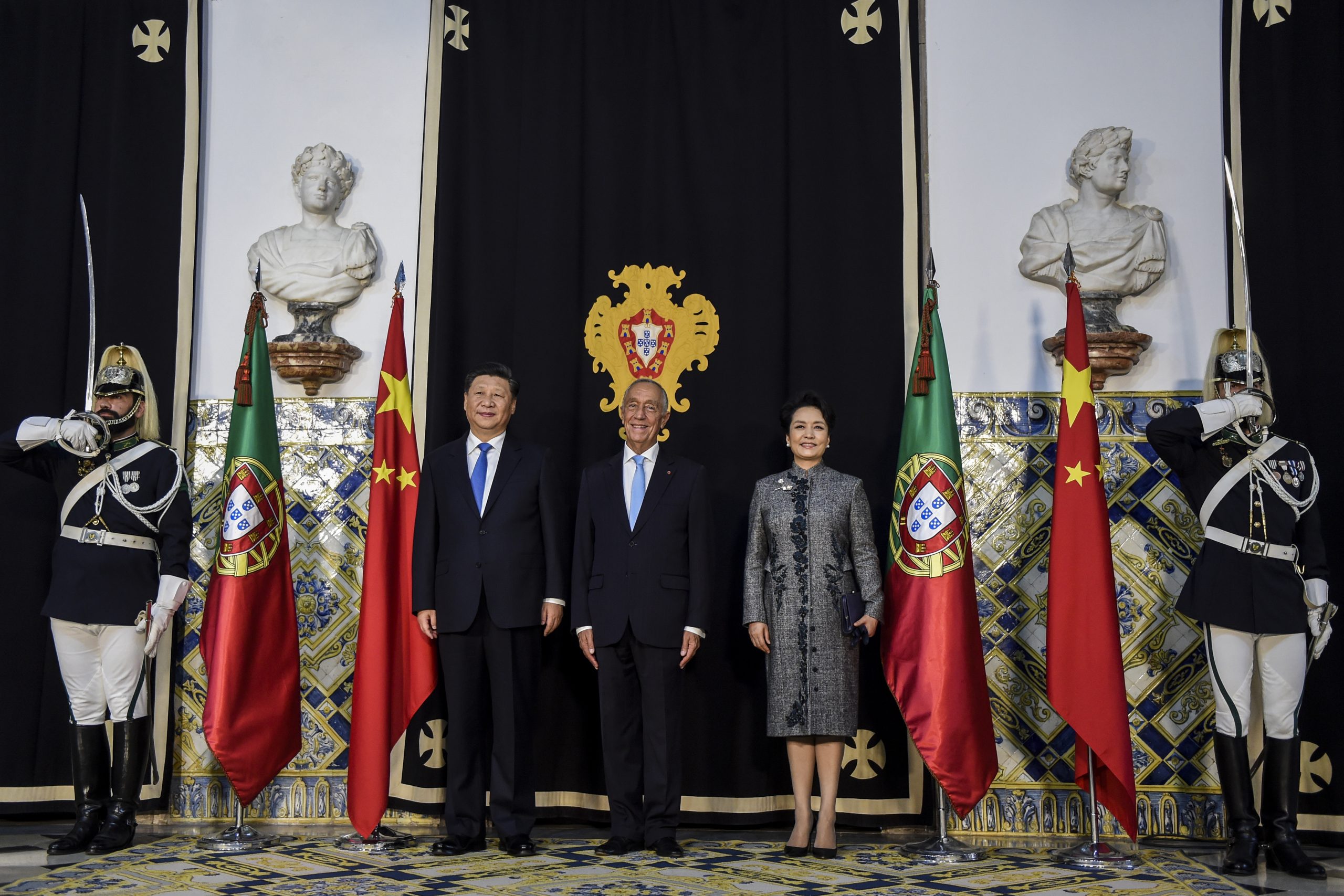
In the energy sector, the fourth area of cooperation, the two countries will combine forces namely through the exchange of knowledge and experience in the integration of renewables, sustainable and smart electricity transmission, as well as in grid management.
The fifth area of cooperation, trade and investment, promotes both “on the basis of a level playing field, and internationally agreed upon norms and standards, market rules, with a view to expanding the two-way investment and trade flow.” The agreements seeks to “further deepen investment, trade and industrial cooperation, as well as cooperation in related third country markets,” which bodes well for the Portuguese-speaking countries, many of whom are actively seeking outside investment and development. Tying back into previously mentioned areas, this section further states the two countries’ determination to actively cooperate on investment projects in the electric mobility sector in Portugal.
The sixth cooperation area is finance, encouraging respective financial institutions to “provide financing support and financial services for production capacity, investment and trade cooperation.” Portugal and China also established the goal of strengthening exchanges between their currency and financial regulators.
The final area of cooperation covers people-to-people connectivity. This includes sister cities networks, education, culture, health, tourism and public welfare, among others, through the enhancement of cooperation between local governments, media, think tanks, and youth.
Beyond defining areas, the MoU also sets out modes of cooperation, including high-level visits and exchange mechanisms, currently in place or to be created, all with the aim of “building a multi-tiered information sharing platform for communication, increasing transparency, and encouraging participation of people in all sectors of society.” The sides further committed to carry out joint plans, economic and technological exchanges and cooperation, joint research and pilot programmes in key areas, as well as information sharing, capacity building, personnel exchanges, and training.
To support the implementation of major programmes, such as infrastructure, energy, transport and digital programs under the BRI, the two sides set out to “explore mutually beneficial models of cooperation,” in accordance with market principles. They will also work to promote cooperation between public and private capital, “provide investment and financing support through diversified models, and strengthen exchanges and cooperation to ensure safety of the projects.” Factors like the sustainability of debts will be considered when mobilising funds.
500 years in 24 hours
President Xi’s whirlwind 24-hour visit to Lisbon began with Portuguese President Marcelo Rebelo de Sousa inviting him to feel “at home” in the capital.
The official visit, which de Sousa will reciprocate in April 2019, also served to highlight 40 years of bilateral diplomatic relations between the two countries whose ties, with Macao at the epicentre, are now more than 500 years old.
Capturing newspaper headlines and live on Portuguese news channels, the visit by the Chinese head of state took place in an atmosphere of official pomp, but also popular participation: the Chinese community residing in Portugal mobilised in large numbers to support Xi at the main public moments of the visit, including the military parade in front of the Jerónimos Monastery, the visit to the National Assembly with military honours and even the arrival at the Hotel Ritz in central Lisbon, which served as the Chinese president’s headquarters for the duration of his visit.
Supporters wore flags of both countries and carried bright red posters with phrases in Chinese extolling Xi. In conversation with journalists, they expressed enthusiasm for the high-level understanding between the two countries, as well as satisfaction with Portugal as a host country.
Bilateral negotiations were ongoing during the visit and culminated on 5 December with the signing of a joint declaration at the Palace of Queluz (known as the “Portuguese Versailles” for its luxurious interiors) outside of Lisbon. The set of bilateral agreements between the two countries address a number of important topics, from climate change to trade.
Those in the Portuguese business and scientific community with ties to China were particularly pleased with the seventh article of the document which states that “Portugal welcomed and expressed its interest in participating” in the Belt and Road Initiative.
The MoU on this initiative “enshrines the deepening of the political dialogue and promotes sustainable connectivity between Europe and Asia in the field of transport,” in particular “through the development of direct strategic free and fair trade, closer cooperation and understanding between peoples in areas of common interest, on a harmonious, balanced, and respectful basis of international commitments equally accepted by each of the parties.” The two sides also reaffirmed their interest in fostering cooperation with third countries in regions such as Africa and Latin America.
This point perfectly encapsulates the aspiration of the Portuguese government – and a large part of the business community – to bring to Portugal infrastructure projects linked to BRI, while also incorporating scientific initiatives by creating bases for cooperation. The explicit reference to cooperation with Africa and Latin America not only advantages Portugal, but Macao and the rest of the Portuguese-speaking world.
Celebrating the 20 years of Macao’s administration return to China in 2019, the final declaration also highlights the role of the hub for the Lusophone community, recognising “the remarkable development successes” that the MSAR has achieved since its inception and emphasising “Macao’s important role in the Luso-Chinese relationship.”
The two countries expressed “a willingness to strengthen Macao’s role as a bridge and link to promote Portugal-China long-term friendship,” in addition to “a willingness to continue to support Macao’s role as a service platform for trade cooperation between China and Portuguese-speaking countries.”
The same recognition is extended to Forum Macao, 15 years after its establishment, with the two countries reiterating their commitment to the implementation of the fruits achieved in their Ministerial Conferences, and to continue to promote pragmatic cooperation in all matters with concrete actions within the framework of the Forum.
After a lunch with Portuguese Prime Minister António Costa at the Palace of Queluz, and the signing of almost two dozen official and business agreements, Xi described the visit as “a great success,” which has “[engendered] driving forces for the development of the bilateral strategic partnership.”
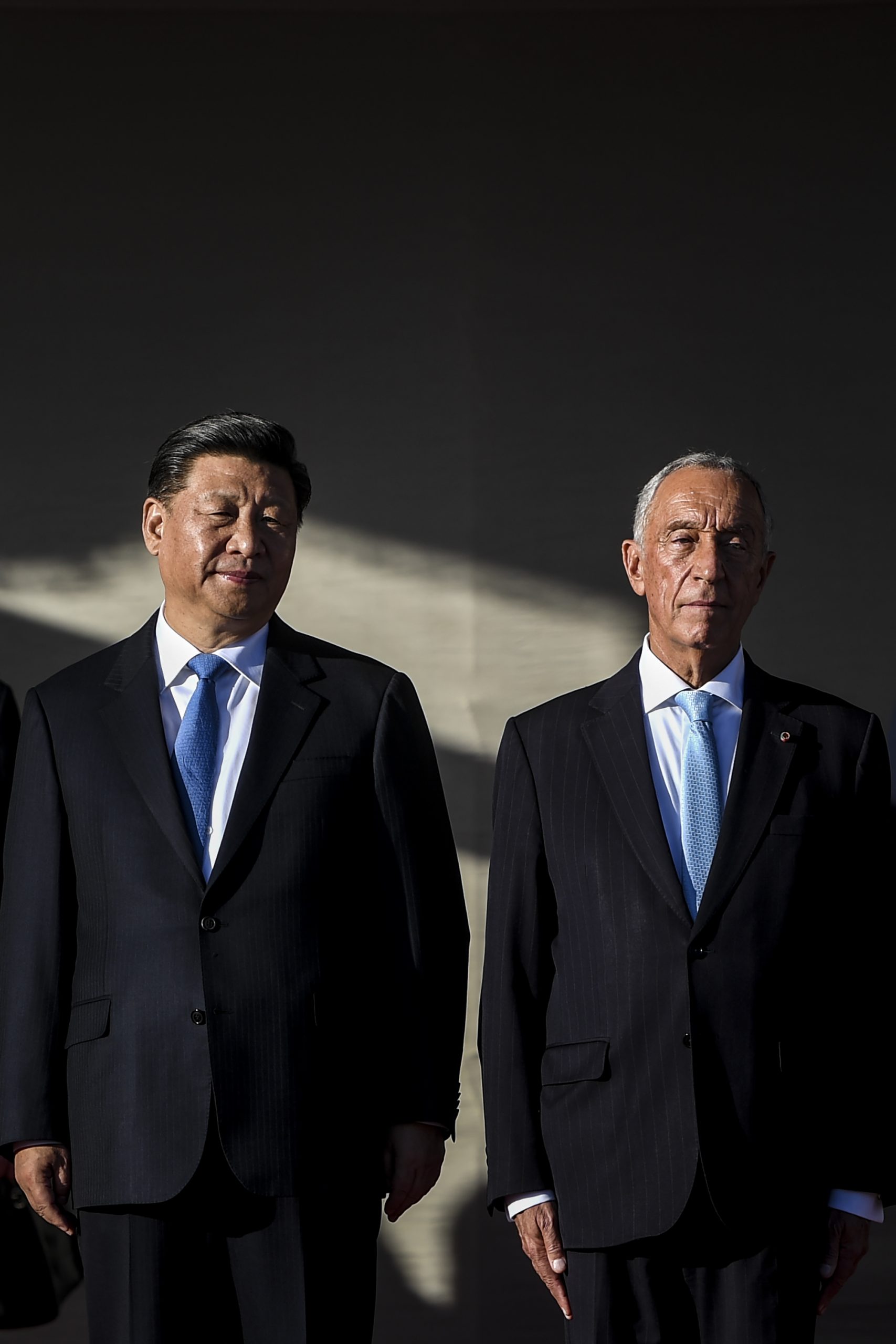
“As we feel the bilateral relationship is at its best point in history, we will seize the 40th anniversary of bilateral relations as a new point of stability to deepen our friendship and cooperation and elevate our global strategic partnership to a new level,” said the Chinese president, speaking against the bright red background of the two countries’ flags.
The objectives for the near future are clear: to maintain the trend of frequent high-level visits; and to strengthen exchanges between governments, parliaments, political parties, and at local level between peoples by generating “understanding and mutual support on matters of vital interest,” explained Xi. The ultimate goal, he said, is “to continually raise the level of mutual trust.”
Both leaders were effusive in expressing their satisfaction with Portugal’s cooperation in the BRI, which already includes eastern Eurpoean countries like Hungary and Greece in the Mediterranean.
“We will insist on the spirit of openness, inclusiveness and shared interests; create more synergies between development strategies; reinforce the construction of the BRI and successfully implement existing projects; improve cooperation mechanisms; expand collaboration areas; and jointly explore third party markets,” he said.
For Portugal, which is still recovering from the 2011 economic crisis, inclusion in the BRI promises to make the country more central in global transport and logistics routes, taking advantage of its strategic location in the Atlantic region. It also increases the country’s status as an investment destination for Chinese companies, which already have a significant presence in key sectors such as energy, banking, insurance and health.
Speaking at a press conference along President Xi, Prime Minister Costa reiterated his government’s wish – which had already been expressed by his Economy minister – to receive “new root investments by Chinese companies” in the production sector. Several industrial and logistic parks all over the country, namely in Sines, have expressed interest in receiving them.
Without explicitly referring to the biggest deal that currently involves companies from both countries – China Three Gorges (CTG) offer to acquire the capital of EDP (Energias de Portugal) – Costa underlined the government’s openness to the “reinforcement of investment [by Chinese companies] in assets where [they] have been investing in Portugal.” The Portuguese government has already given its approval for the takeover of EDP by CTG, valued at EUR9.07 billion (US$10.28 billion), although it still has to be approved by the regulatory authorities of countries where the Portuguese company is present, namely those in Europe and North America.
With Portugal’s public debt still high at over 125 per cent of GDP, the Portuguese government also welcomed the suitability of Portuguese bonds emission in yuan, after the Chinese rating agency, Dagong, gave its green light to such financial operations.
Both leaders were effusive in expressing their satisfaction with Portugal’s cooperation in the BRI, which also includes countries like Hungary and Greece.
As President Xi Jinping flew away from Lisbon, he could be assured that he now had in Portugal another BRI partner, facing the Atlantic, and with direct links to Africa and South America.
A flurry of deals
Located in the heart of the Atlantic, the Azores archipelago is set to become a central point for Portuguese-Chinese cooperation.
Terceira Island, home to the Portuguese Air Force base Lajes Field, is the focal point for both countries. According to Prime Minister António Costa, Portugal is open to China using the base, which has seen a drawn down of US forces in recent years.
China has expressed interest in Portugal’s Atlantic International Research – or AIR – Centre in the Azores, which monitors climate change and its effects, particularly on the Atlantic and surrounding countries. Research conducted there aims to contribute to a more sustainable future, and to generate jobs for a local economy hit hard by the partial withdrawal of the US.
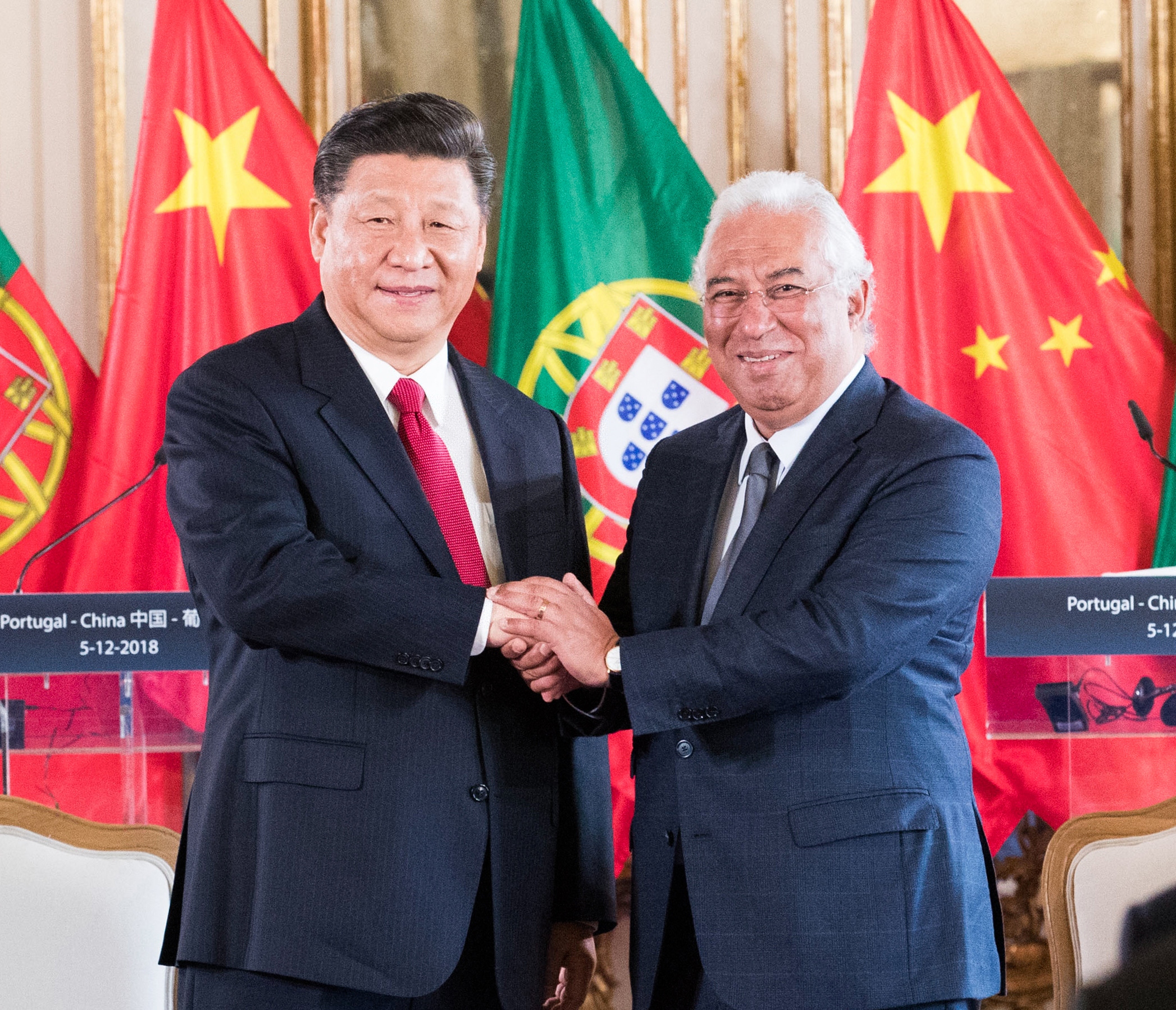
While not part of the initial workshops to establish the AIR Centre, China was represented at the High-level Industry-Science-Government Dialogue in April 2017 and sent a delegation from the Chinese Ministry of Science and Technology and the Chinese Academy of Sciences (CAS) to the Azores in December 2017. The Portuguese government regards China and India as important partners for the AIR Centre.
Another point for scientific cooperation will be STARlab, a research and technological development laboratory spread across three facilities in China (Shanghai) and Portugal (Peniche and Matosinhos). The project, set to open in March, aims to develop technologies and engineering systems to improve the knowledge, management, and sustainable exploitation of oceans and space. Over the next five years, the two Portuguese facilities will use a joint EUR50-million (US$56.68 million) investment by both countries to manufacture microsatellites; CAS is already a leading investor in the sector worldwide.
In terms of business cooperation, Chinese e-commerce platform Alibaba took centre stage in the wake of Xi’s visit to Portugal, signing a deal with Portuguese trade agency AICEP to place Portuguese products on its e-marketplace. Alibaba also presented its widely used payment service Alipay, now available for Portuguese businesses, while in Lisbon.
More than a dozen business deals were signed during the Chinese president’s visit. Aicep also signed an agreement with China’s biggest food distribution company that will create a service centre for Europe in Matosinhos. Other deals include those between EDP and China Three Gorges; REN and its shareholder State Grid; and Portuguese state bank CGD and Bank of China, which will combine for the issuance of so-called panda bonds from Portugal, in yuan.
